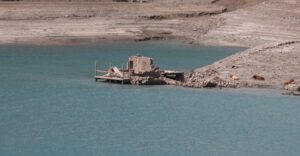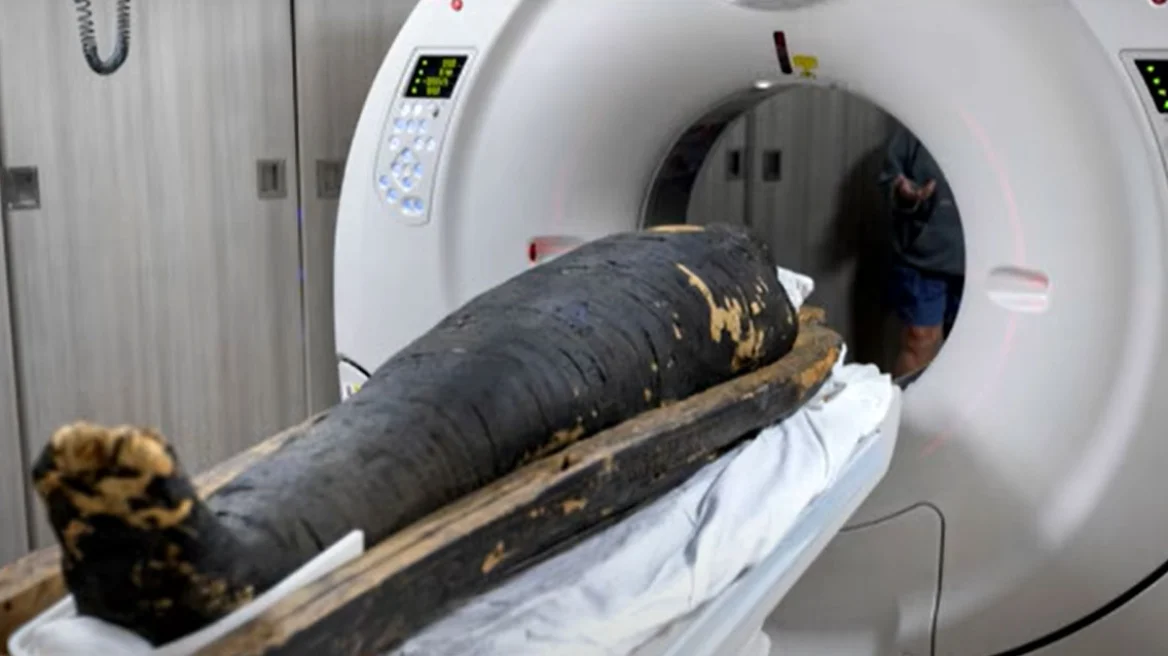The alarm about the decline of water resources in the country due to climate change, which she describes as extremely serious and constantly worsening, has been sounded by Elisabeth Feloni, professor of hydrology at the University of West Attica
Speaking to AP-MPA, Ms Feloni stresses that “if no further measures are taken to save water and manage water resources sustainably, Attica may again face serious water supply problems, such as those observed three decades ago.”
It further notes that “to address the problem of diminishing water resources in Greece, a holistic and long-term strategy is needed to ensure water sufficiency for the coming decades. Central to this effort is the improvement of water supply and sewerage infrastructure, which must be upgraded immediately to reduce water leakage, which is still a major problem in many areas.”

The following is the full text of the interview of Professor Elissavet Feloni, Professor of Hydrology, to APE-MPA and George Psillias
Q: Ms. Feloni, how serious is the problem of diminishing water resources in the wider Greek territory?
What is the problem of the seriousness of the problem of the Greek population?
The problem with the decline of water resources in Greece is extremely serious and is constantly worsening due to climate change, increased water demand and non-rational management. The effects are severe in both mainland and island Greece, with many areas in a worrying situation. This situation is not new. As early as the beginning of 2000, the scientific community, through major European research projects, had already warned of the serious consequences, estimating that runoff could decrease by up to 40% by 2050, due to rising temperatures and decreasing rainfall.
The recent prolonged drought period, particularly in the last two years, has highlighted the delay in investing in critical water infrastructure, which is becoming more pronounced as climate conditions evolve and tourism increases. Despite the adoption of the Water Framework Directive (2000/60/EC), which was an important first step, the opportunity to formulate a Unified National Plan for the Sustainable Management of Water Resources has not been sufficiently exploited. Such a plan should focus on optimising the management of existing infrastructure, planning and prioritizing new investments, and promoting non-construction measures.
ER: Do you think the Greater Capital Region will face a water scarcity problem like it did in the early 1990s?
The greater Capital Region has experienced serious water scarcity problems in the past, most notably in the early 1990s. 1989 saw the highest annual water consumption to date (376 million m³), and already the previous year saw a significant reduction in reservoir inflows, leading to a nearly seven-year period of drought. Today, Athens’ water supply system has been strengthened by the addition of the Evinos reservoir and improvements have been made to the distribution networks, making the system more resilient than at that time. Although annual consumption now exceeds 400 million m³, the situation has improved, but the problem of water scarcity remains a topical one, as climate change and increased temperatures increase the risks of new periods of water scarcity. If no further measures are taken to save water and manage water resources sustainably, Attica may again face serious water supply problems such as those observed three decades ago.
EP: When can we say that a “red light” has been sounded for water scarcity in the capital city?
It is not easy to accurately predict when water scarcity will “hit red” in Athens, as it depends on many factors, including climate change, water resource management, and water consumption. However, if current trends continue and scenarios predicting a 20-30% reduction in rainfall are confirmed, the chances of severe water scarcity increase significantly over the next 20 years. This eventuality will become more likely unless substantial measures are taken to conserve and rationally manage water resources, such as upgrading infrastructure, strengthening water recycling systems and further utilizing water for uses such as irrigation, and informing and raising public awareness to reduce consumption.
Q: In your opinion, how should the problem of water resource limitation in the country be addressed and what are the projects that will create conditions of security at least for the capital and Thessaloniki?
To address the problem of water resource depletion in Greece, a holistic and long-term strategy is needed to ensure water sufficiency for the coming decades. Central to this effort is the improvement of water supply and sewerage infrastructure, which must be upgraded immediately to reduce water leakage, which is still a major problem in many areas. The construction of new dams and storage reservoirs, as well as the reinforcement of existing infrastructure, is crucial to ensure water sufficiency, especially for large urban areas such as Athens and Thessaloniki.
At the same time, water recycling and reuse should be integrated on a larger scale, especially in industries and crops, where consumption is particularly high. Implementing systems that allow the reuse of treated water for irrigation and other non-potable uses will contribute significantly to reducing overall demand.
Water conservation, both at the domestic and public levels, is also crucial. Public education and awareness, comprehensive educational programs in our schools, along with the promotion of conservation technologies such as smart irrigation systems and low water consumption devices should be a priority.
The use of alternative water sources, such as desalination, especially on islands, and more efficient aquifer management, can offer important solutions to the problem of water scarcity. However, to ensure sustainable management of water resources, strategies that take into account future climate conditions need to be developed and implemented. More research on the impacts of climate change should be taken into account and strengthened to properly adapt water management systems based on estimates of decreasing rainfall and increasing temperatures to protect the country from future water scarcity crises.
With the proper implementation of these measures, Greece can ensure the adequacy of its water resources, protecting both the major cities and the rest of the country from the risk of water scarcity.
Q: Ms. Feloni how can the problem on the islands, which seems to be the biggest at the moment, be addressed?
Dealing with water scarcity on the Greek islands requires a combined approach. Desalination is a central solution, as the installation of desalination plants can ensure a steady supply of water throughout the year. To be sustainable, these plants should be powered by renewable energy sources such as solar and wind energy.
At the same time, the creation of small dams and reservoirs to collect and store rainwater can enhance the autonomy of the islands, especially during periods of low rainfall. However, the efficiency of this solution depends on the local characteristics of each island.
Groundwater management is also critical. Protecting aquifers and controlling overdrafts will contribute to the sustainable use of available resources. Also, the adoption of new technologies to save water, such as smart irrigation systems and the reuse of treated water, can reduce consumption and improve overall water management.
In addition, raising awareness and educating residents and visitors about the importance of rational water use is important and this is where we are also far behind as a country. Solving the problem requires coordinated action at the level of central and local government, as well as cooperation between private and public actors. In particular, the promotion of sustainable tourism and the adoption of best practices will contribute to tackling water scarcity. Finally, as already mentioned, the development of a Unified National Plan for the Sustainable Management of Water Resources, including both short-term and long-term strategies, is essential to ensure the sustainability of islands and prevent future problems.
Ask me anything
Explore related questions





